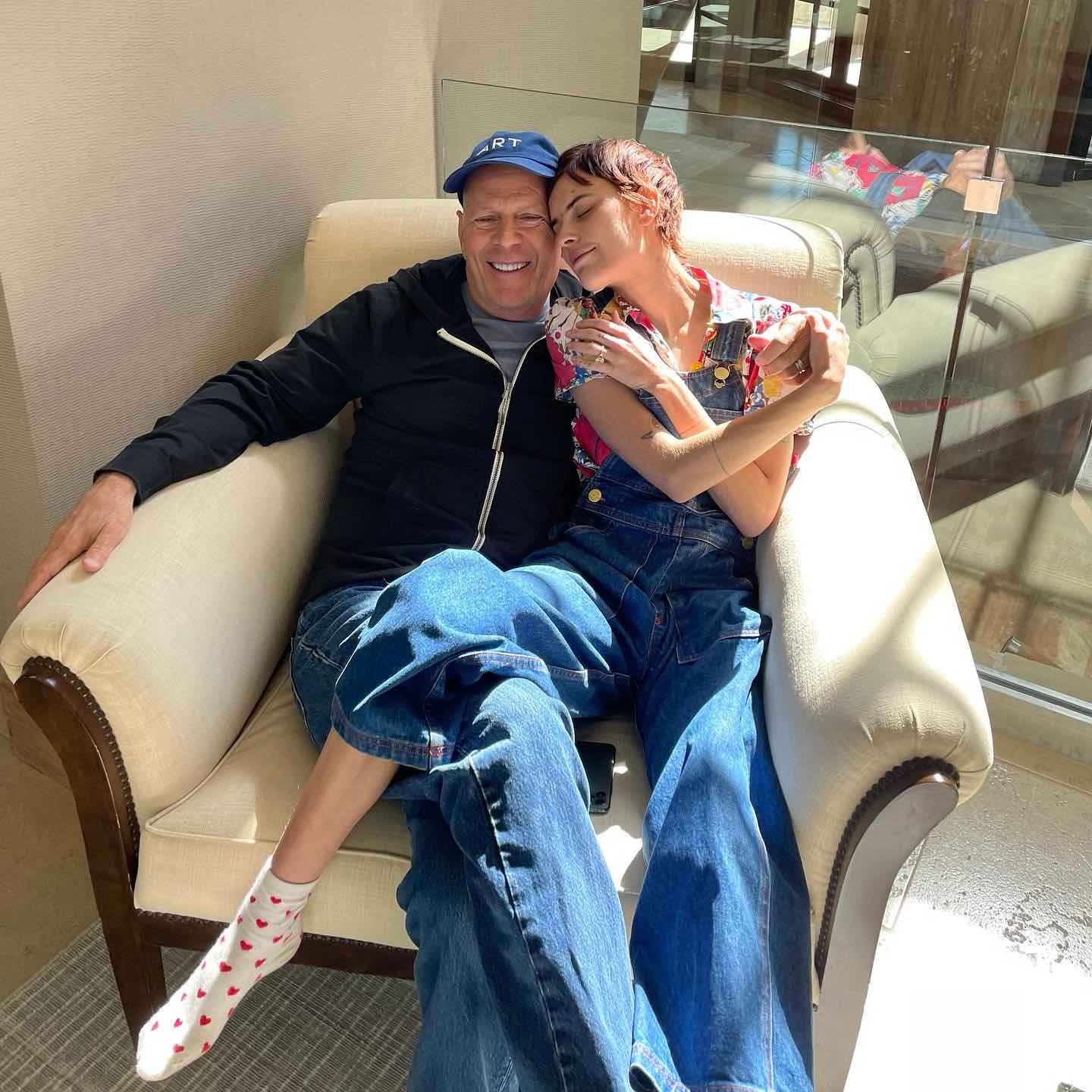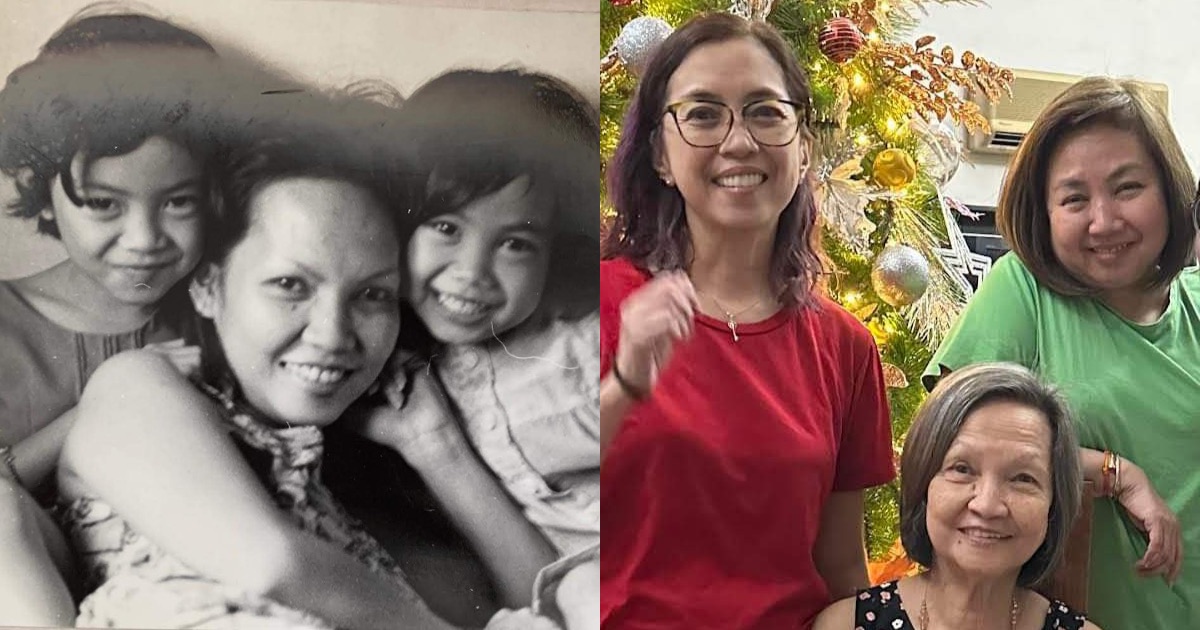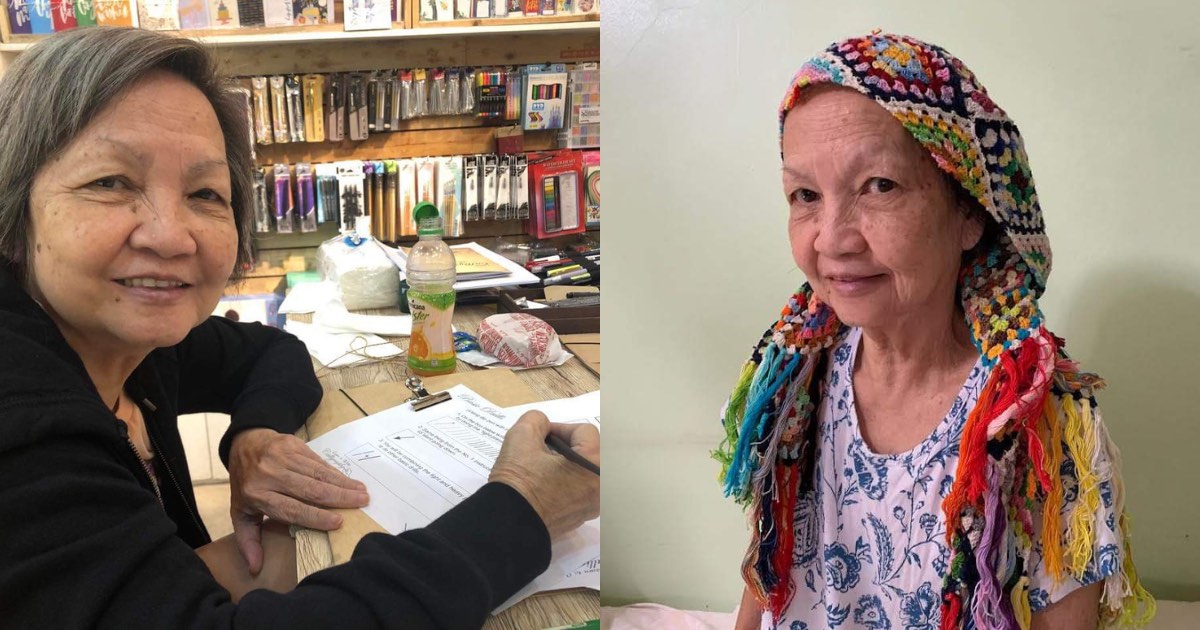Losing memory, recollecting love: The reality of caring for someone with dementia
The precious things in life are the memories you have with the people you love. But what if those are now slipping away with one of them, and that person struggles to make sense of everyday things—including the connection you've made? This is the heartbreaking reality of dementia, a thief that chooses no one.
Even Hollywood action star Bruce Willis was unable to dodge the disease.
Early this year, the 67-year-old's family announced that his aphasia—a language disorder caused by damage in a specific part of the brain—had progressed. In a statement, they gave a more specific diagnosis: frontotemporal dementia.
In her poignant essay for Vogue, Tallulah Willis, daughter of Bruce and ex-wife Demi Moore, echoed the sadness and uncertainty of those with loved ones who are battling dementia.
While she discussed her own mental health battles, she also wrote about facing her father's condition: "In the past, I was so afraid of being destroyed by sadness, but finally, I feel that I can show up and be relied upon. I can savor that time, hold my dad’s hand, and feel that it’s wonderful. I know that trials are looming, that this is the beginning of grief, but that whole thing about loving yourself before you can love somebody else—it’s real."

Tallulah, 29, also confessed to the denial that she's still going through. "I keep flipping between the present and the past when I talk about Bruce: he is, he was, he is, he was. That’s because I have hopes for my father that I’m so reluctant to let go of."
What is dementia?
Dementia refers to the presence of cognitive loss, including memory, problem-solving, language, judgment, social skills and behavior, and other thinking abilities that "are severe enough to interfere with a person's ability to function in his daily life," Dr. Donnabelle Chu, a neurologist with sub-specialization in dementia and other memory disorders at the Makati Medical Center, told PhilSTAR L!fe. "It is not a specific disease but rather is an umbrella term that comprises different diseases or disorders."
Dr. Chu said that dementia is common in the elderly, which means cognitive screening tests and assessments can be done to detect early signs of the disease.
Sadly, there is no cure for it yet. "Medications that may help slow down the progression of dementia, caused by irreversible dementias, should be given as early as possible. Knowing the possible cause of dementia should be detected to specifically manage the underlying cause. Non-pharmacologic interventions or activities may also help slow down its progression," the neurology expert said.

Dr. Chu explained that having a trained caregiver is ideal, but noted that anyone who can take care of persons with dementia, whether formal caregivers or family members, "should be counseled and taught how to handle patients with it and what activities should be done with the patient to prevent behavioral symptoms and progression of the disease severity."
"Proper education and discussion with the physician on how to deal with patients with dementia is a must," she added.
Caring for a loved one with dementia
Sisters Oya and Ina Arriola have been taking care of their mother, Fe, who was diagnosed with Alzheimer’s in 2017. Every day has since been an “emotional” one, as Ina put it. They have been documenting their mom’s dementia journey on their TikTok page since November last year.
"It started with her forgetting small things—conversations that happened, people’s names, getting disoriented in new places. We knew from our experience with our father, who had dementia secondary to Parkinson’s disease, what it could be. The doctor eventually confirmed it was Alzheimer’s, and that she was suffering from early-stage dementia," Ina told L!fe.

Ina admitted that coming to terms with Fe’s condition was far from easy. "At first, I was impatient I had to repeat things to her, explain things to her,” she said, noting that Fe was a voracious reader before she got sick. "She'd forget what had happened in the previous chapters, so she would read them again, then after that, she couldn't really understand what she was reading anymore."
Reading up on the illness became a huge help for Ina and Oya. “I remember someone gifted me with a book and it opened my eyes to what it was. It slowly made me realize it’s not her fault. She’s sick, so what am I getting mad at her for?” Ina recalled.
While they now understand Fe’s condition better than before, there continue to be “emotional” days.
The Arriola family recently moved to their new home, which made Fe more confused than usual in the past weeks. “She appeared worried when we told her about our new place. She worried about her things. 'Had they been moved, too?' We had to bring her to her closet every time she asked to assure her that things were in the new house.”
“Every day is emotional, really," said Ina. “Just today, we took her swimming, and she remarked that she had forgotten how to swim already. She appeared sad about it, like she couldn’t remember how.”

Caring for Fe in her battle with dementia has not been a walk in the park, but their immense love for her makes it worthwhile. "We don’t care for her because we feel obliged. No. She never made us feel like we had to take care of her when she’s old. We want to care for her because we love her. I think that makes it easier," Ina explained.
'Moments of happiness'
Fe has been forgetting a lot of things that she used to remember, including the names of her helpers, and even her age. But even though it’s been years since her diagnosis, she has not forgotten about Ina and Oya yet.
“Dapat by this time nakalimutan na rin kami. It’s been a few years. The medicines are helping slow down the progress of the disease,” Ina said, confessing they can never be prepared for that moment. “We’re hoping to delay it as much as we can, her forgetting us.”
Ina and Oya take comfort in knowing that most of the memories that have stayed with their mom are the good ones. “She has been reminiscing about her past. She tells us stories from when she was young."
"You see the people who made an impact in her life—her father, brothers, friends—because those are the memories that have stuck. We’re glad the memories she has are generally happy. There are some sad ones, too, of course. But all in all, we think she knows she's had a happy life,” Ina continued.

Each day is a gift for Fe’s daughters as it gives them another chance to make their parent happy, no matter how fleeting each moment is for her.
"She lives from moment to moment now, you see. Seeing her happy for that one moment, knowing she won't remember it a few minutes later, is painful. But at the same time, it’s that temporary happiness we try to give her that makes things lighter somehow," Oya mused.
For Ina and Oya, that's enough to keep them going. "Moments of happiness na lang ang goal. Dapat masaya siya lagi," Ina said, "even if she soon forgets."


